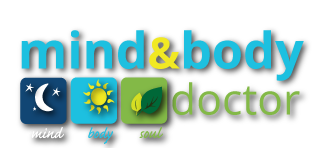Attention-Deficit Hyperactivity Disorder (ADHD) is the most commonly diagnosed disorder of childhood. It is estimated to affect 3 to 5 percent of school-age children and affects two to three times as many boys as girls. ADHD is not merely a problem with paying attention but rather a problem within the brain’s executive functioning system. Therefore, ADHD makes it difficult to manage the multiple tasks of daily life, especially complex tasks that require organization, planning, and sustained focus. ADHD in both adults and children are comprised of deficits in behavioral inhibition, sustained attention and resistance to distraction, emotional regulation, and the regulation of one’s activity level to the demands of the situation.
ADHD is challenging for both you and your child, however, once you understand the challenges and their impact, you can learn to compensate for areas of weakness and take advantage of the many strengths and talents an individual has. There are three subtypes of ADHD: Inattentive Type, previously referred to as ADD, Hyperactive-Impulsive Type, or Combined type. Below is a list of common signs associated with these types:
Impulsivity
Impaired response inhibition, impulse control, or the capacity to delay gratification as observed by:
- Acts without thinking
- Blurts out answers before questions have been completed
- Difficulties waiting his/her turn
- Often interrupts others
- Guesses rather than taking time to think through a problem
Hyperactivity
Excessive task-irrelevant activity or activity that is poorly regulated to situational demands as observed by:
- Constantly fidgets and squirms; restlessness
- Often leaves his or her seat in situations where sitting quietly is expected
- Moves around constantly, often runs or climbs excessively (in children more than adults)
- Talks excessively
- Has difficulty playing quietly or relaxing
- Is always on the go, as if driven by a motor
- May have a quick temper or a short fuse
Inattention
Poor sustained attention or persistence of effort to tasks observed by:
- Trouble staying focused; is easily distracted
- Makes careless mistakes and doesn’t pay attention to details
- Difficulty sustaining attention
- Appears not to listen when spoken to
- Disorganization
- Lacks internal motivation especially for uninteresting tasks
- Frequently loses or misplaces homework, books, or other items
- Gets bored with a task before it’s completed
- Forgetful and has difficulty remembering things and following instructions
Other symptoms frequently noted include:
- Delayed development of internal language and rule-following:This includes the private internal voice that we use to talk to ourselves in order to consider, reflect and self-regulate. In combinations with weakness in working memory, an individual with ADHD will often have difficulties with reading comprehension, especially on those longer and less interesting assignments.
- Lessened ability to problem-solve and remain flexible in pursuing long-term goals.
- Children’s ability to stay on-task will vary with the situation. They tend to perform best with favored activities and can laser focus, with one on one situations, and when external motivators are present.
Symptoms must be present in childhood years. For those presenting with hyperactivity and impulsivity, symptoms are typically seen between the ages of 3 and 6 years old. For those who are primarily inattentive type, diagnosis may be delayed since daydreamers and those who are not disruptive to their peers may not be identified until later on. Just because a child has symptoms of inattention, impulsivity, or hyperactivity, this does not mean that he or she has ADHD. Symptoms of other disorders can appear similar to ADHD. For this reason, Dr. Cherwony will never evaluate an individual for ADHD alone. Rather, a diagnosis arises from a thorough evaluation that includes an assessment of emotional factors (anxiety, depression), academic functioning (often impacted by ADHD), and language processing. It is also common that individuals diagnosed with ADHD meet criteria for other diagnoses. Therefore a thorough evaluation is conducted in order to know exactly what type of intervention will be best to allow your child or yourself to demonstrate full potential.
Just because a child has symptoms of inattention, impulsivity, or hyperactivity, this does not mean that he or she has ADHD.
I believe in a multi-disciplinary team approach and have spent years establishing relationships with other professionals and doctors in the community who I highly respect and refer to as needed. In the event that I determine that you or your child will benefit from either an additional or alternative intervention, I will refer you to that professional I deem as best for your specific needs. I believe in treating all of my clients the same way I would want someone else to treat my own children and other family members.
Call today to discuss which services may be of help to you and / or your child | 561-699-4639
